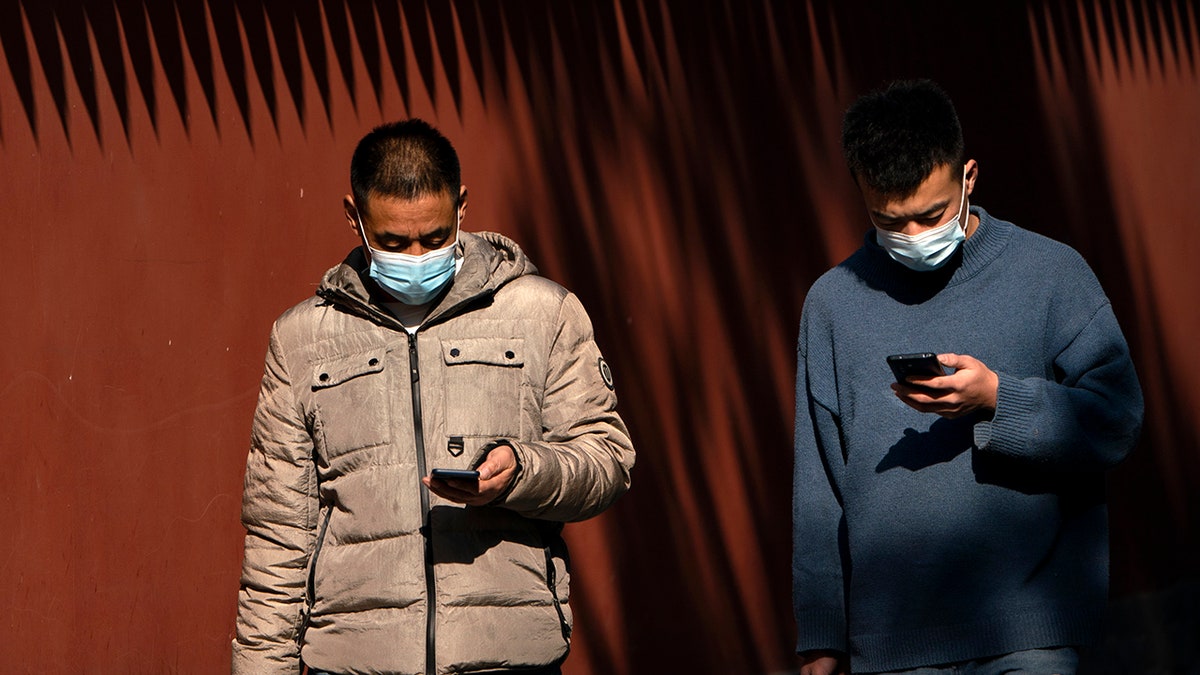Fox News Flash top headlines for February 17
Fox News Flash top headlines are here. Check out what's clicking on Foxnews.com.
TAIPEI, Taiwan (AP) – Ma Xiaolin frequently wrote about current affairs on one of China's leading microblogging sites, where he has 2 million followers. But recently, he said in a post, the Weibo site called and asked him not to post original content on topics ranging from politics to economic and military issues.
"As an international affairs researcher and a columnist, it looks like I can only go the route of entertainment, food and beverage now," the international relations professor wrote on Jan. 31.
Ma, who often posted on developments in the Mideast, is one of many popular influencers working within the constraints of China's heavily censored web who is finding that their space to speak is shrinking even further with the latest policy changes and a clean-up campaign run by the country's powerful censors. He declined an interview request.
Beginning next week, the Cyberspace Administration of China will require bloggers and influencers to have a government-approved credential before they can publish on a wide range of subjects. Some fear that only state media and official propaganda accounts will get permission. While permits have been needed since at least 2017 to write about topics such as political and military affairs, enforcement has not been widespread. The new rules expand that requirement to health, economics, education and judicial matters.
BIDEN TAKES HEAT FOR 'DIFFERENT NORMS' REMARK WHILE DISCUSSING CHINA, HUMAN RIGHTS
"The regulators want to control the entire procedure of information production," said Titus Chen, an expert in Chinese social media policy at National Sun Yat-Sen University in Taiwan.
The latest move is in line with ever more restrictive regulations under President Xi Jinping that constrict an already narrow space for discourse. The Chinese leader has made "digital sovereignty" a central concept of his rule, under which authorities have set limits and increased control of the digital realm.

People wearing face masks to protect against the spread of the coronavirus use their smartphones as they walk through Ditan Park in Beijing, Tuesday, Feb. 9, 2021. China's internet watchdog is cracking down further on online speech, issuing a new requirement that bloggers and influencers have a government-approved credential before they can publish on certain topics. (AP Photo/Mark Schiefelbein) ((AP Photo/Mark Schiefelbein))
The new credential requirement could restrict individuals from posting original content, including people like Ma who aren't openly challenging the line of Xi's ruling Communist Party. Weibo CEO Wang Gaofei, responding to Ma on the platform, said commentary on news released by official media was permitted but commentators could not "release news" themselves.
The policy revision is meant "to standardize and steer public accounts and information service platforms to be more self aware in keeping the correct direction of public opinion," according to a statement posted by the Cyberspace Administration.
A week after unveiling the new rules in late January, the administration held a nationwide conference on the importance of "strengthening order in online publishing." The head of the agency, Zhuang Rongwen, said the agency must "let our supervision and management grow teeth."
HOUSE REPUBLICAN RESOLUTION URGES US TO BOYCOTT 2022 WINTER OLYMPICS IN BEIJING
On Feb. 4, the agency publicly announced a month-long clean-up drive targeting search engines, social media platforms and browsers. Such campaigns, in which companies take steps to meet government demands, aren't new, but enforcement was looser in the past: In 2017, Weibo backed off after complaints it was lumping gay content in with a pornography ban.
It appears to be happening in concurrence with a crackdown to enforce existing rules.
"It is a big deal, it's a massive campaign," said Xiao Qiang, an expert on digital censorship at the University of California at Berkeley. "And these are people who didn't write something sharp. They are intentionally not being edgy about things."
A notice on Sohu in January, which also hosts microblogs, said public accounts without credentials must not issue or republish current affairs news. Banned topics include "articles and commentary on politics, economics, military affairs, diplomatic and public affairs; Taking out of context and distorting the content of the Party and country's history; breaking news and commentary." Internet giant Baidu, which also has a publishing platform, issued a similar notice.
It is unclear to what extent bloggers will be punished if they publish commentary without the credentials.
A current affairs account on Tencent's WeChat messaging app was shut down last week on "suspicion of providing an internet news information service." Called "August Old Yu," it was run by Yu Shenghong, a former journalist at state broadcaster CCTV, He did not respond to a request for comment.
COVID CONSPIRACY SHOWS VAST REACH OF CHINESE DISINFORMATION
Representatives of Baidu, Sohu, Weibo and Tencent did not respond to requests for comment. The Cyberspace Administration did not respond to a faxed request.
The coronavirus pandemic appears to have in part spurred the tightened regulations. In the early days of China's outbreak much of the news coverage was driven by online accounts and digital-only media outlets which circulated both news and rumors.
During the pandemic, "'self-media' maliciously created rumors and casually disregarded others' privacy, severely impacting the stability and harmony of society and damaged the legal rights and interest of others," the Cyberspace Administration said in a notice explaining the new policies.
Ultimately, the new rules reflect the censors' worries, even if it isn't precisely clear what they are so insecure about, said Berkeley's Xiao.
CLICK HERE TO GET THE FOX NEWS APP
"In the past entire year, the control has been so tight that hardly anyone can speak about anything," Xiao said.









































